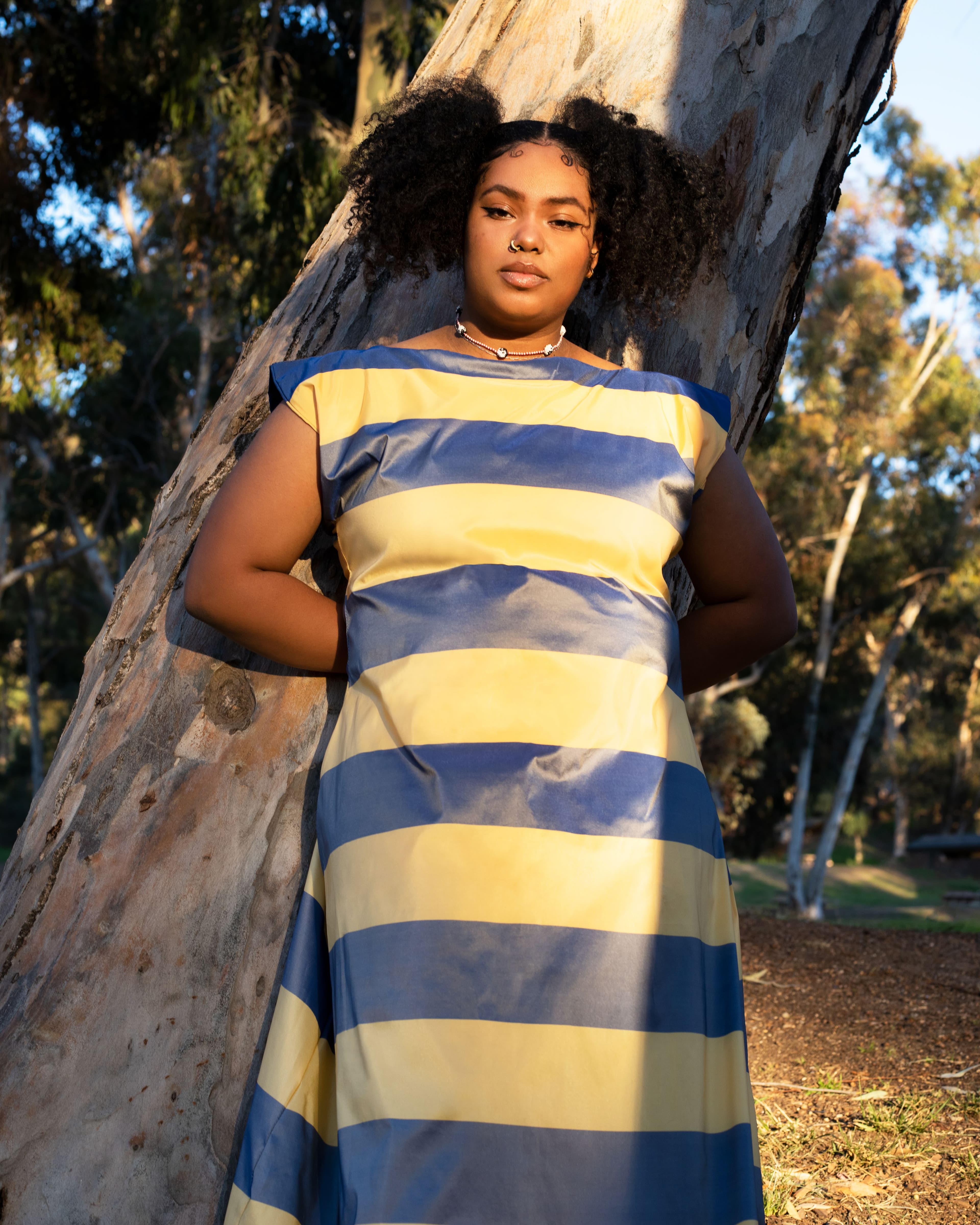
Dress by Des Pierrot. Nose ring and earrings, Abdullah’s own. Beaded necklace by Pura Utz. Chain necklace by Loren Stewart.
Generation Next: Thandiwe Abdullah
During the summer of 2013, protests swelled across the United States following the acquittal of George Zimmerman, who had been charged with the murder of teenager Trayvon Martin, leading to the creation of both the hashtag and the organization Black Lives Matter. Los Angeles native Thandiwe Abdullah was only ten years old at the time, but despite their youth, they participated in a number of marches. As time went on, however, they noticed that they were one of only a handful of youths among a sea of adults and that other Black children and teenagers often felt confused or neglected by the movement. Eager to create space for those their age to connect, they co-founded the Black Lives Matter Los Angeles Youth Vanguard in 2015 to offer a safe environment for the discussion of issues like gun violence and anti-Black sentiment in schools. “I kind of felt like I didn’t really have a place because I’m a child. My mom wouldn’t let me out there in the streets because it wasn’t safe,“ they wrote in an op-ed for Bustle a few years later. “So we were trying to figure out ways for us to do work and organize with other youths in our own communities, how to get what we want [on] our own terms, policing wise.“
Abdullah was uniquely equipped to spearhead the Youth Vanguard—their mother, a professor of Pan-African Studies at Cal State LA and a co-founder of the Los Angeles chapter of Black Lives Matter, had been bringing Abdullah to protests since the age of two. With this experience, Abdullah quickly became a successful organizer: Along with the Youth Vanguard, they helped to create Black Lives Matter in Schools to promote engagement with racial justice and worked with over one hundred student activists and community advocates to eliminate metal detectors and random searches in Los Angeles schools, a move that was unanimously approved by the Los Angeles School Board after three years of campaigning. Abdullah also uses their skills as an organizer with March for Our Lives, lending their voice as an advocate for gun control. For all their tireless work, they was named one of Time Magazine’s most influential teens of 2018.
Observing the efforts of Abdullah, who is now seventeen and enrolled at Howard University, can be bittersweet—in one video shared on their social media from one of many protests last year to remove Los Angeles District Attorney Jackie Lacey for refusing to prosecute police officers for shooting Black people, Abdullah passionately delivers a speech to a rapt crowd of protesters with the charisma and experience of someone much older. Still, they are only a teenager. “I think that we will be the generation that really revolutionizes this world and transforms the world for the better,“ they said on PBS NewsHour last summer. “But at the same time, on the flip side, it is kind of a lot to say that the future of this entire world and this nation is resting on Gen Z’s shoulders when we have barely even made it out of childhood yet.“
Read this story and many more in print by preordering our inaugural issue here. See the full Generation Next series here.
As a nonprofit arts and culture publication dedicated to educating, inspiring, and uplifting creatives, Cero Magazine depends on your donations to create stories like these. Please support our work here.






